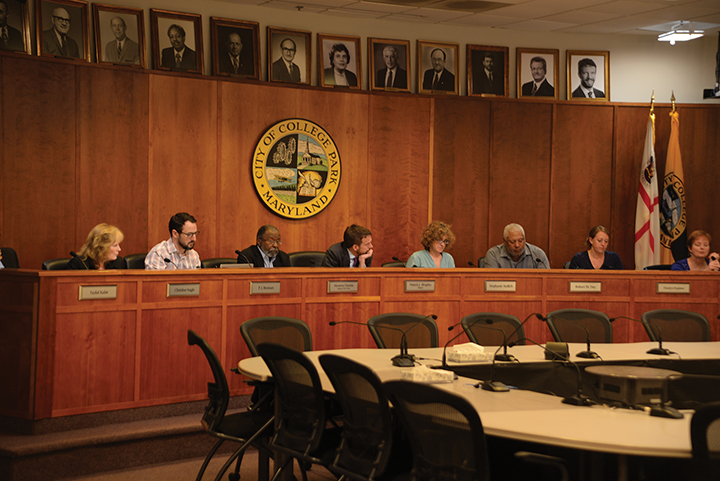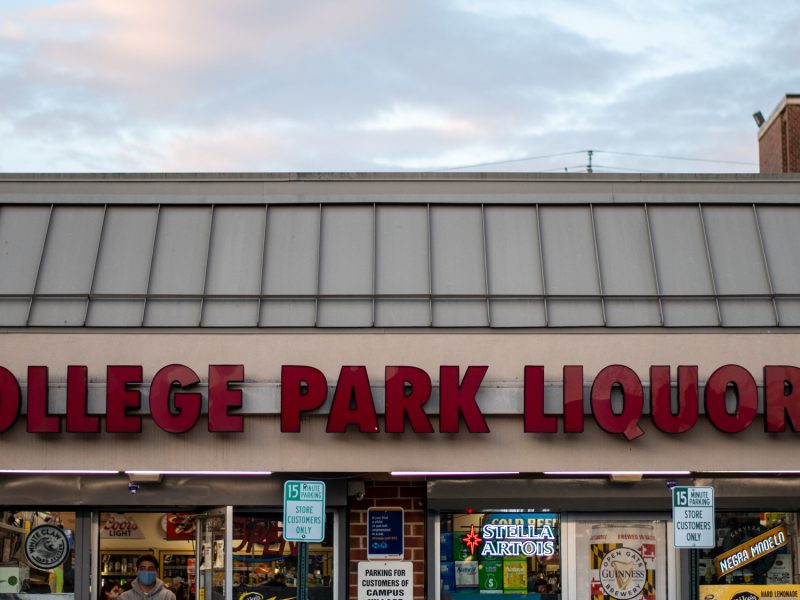College Park residents have mixed reactions after the College Park mayor and City Council announced that a six-vote provision to pass future charter amendments does not comply with state law.
In an Oct. 18 statement, city officials said that an independent legal review of an April charter amendment, which included the six-vote provision, determined that state law for a municipal charter amendment requires affirmative votes from a majority of a city’s legislative body to approve charter amendments. Because the city has eight council members, this means that the city charter cannot require more than a minimum of five of their votes to approve such amendments.
“We’re going to take a look at the charter amendments that were passed earlier this year to make sure that they’re fully in compliance with state law and then making whatever changes are necessary to make sure that they are in compliance,” Mayor Patrick Wojahn said after the statement was released, adding that it would likely be early next year that they “would work with our attorney and [independent counsel] to come up with whatever changes are necessary.”
[Read more: College Park noncitizens voting amendment didn’t pass due to lack of votes]
Carol Macknis, a District 1 resident since 1972, said she’s pleased that recent changes to the city charter are being reviewed to ensure they’re not in violation of state law. Macknis added that she would like to see all future charter amendments come to non-binding referendum on city ballots.
“I wish we could have the supermajority, but given the state law, I can abide with that,” Macknis said. “I am very pleased that they’re going to look and make sure that nothing else in our charter violates state law, or at least goes with it, and I hope that any future charter amendments are put to the non-binding referendum, so that the citizens who can vote at least can express their desire, yes or no, whether they think whatever change is proposed should or should not be implemented.”
“Even though the elections are only every two years, I don’t think there’s any reason to rush to have something changed,” Macknis added.
The six-vote requirement was what the council initially cited to explain why the charter amendment allowing noncitizens to vote did not pass in September. After the council voted 4-3 in favor of noncitizens voting in municipal elections, officials announced the proposed charter amendment didn’t get the six votes it needed to be adopted.
After this occurred, the mayor and council worked with attorney Victoria Shearer to conduct an independent legal review of the April charter amendment that included the six-vote policy, Wojahn said. It came to their attention after “news got out about the supermajority requirement … that the supermajority requirement itself may not have been legally valid,” Wojahn added. He wrote in this week’s mayoral update that it was the Maryland Municipal League, among others, that said the six-vote requirement might not be legally valid.
Chris Keosian, the student liaison to the council, said he was “surprised” to learn the news about the six-vote requirement potentially not being valid a month ago, especially in light of the noncitizens voting situation.
“It was kind of two big blunders at one time. But, I admire the council and staff for dealing with it professionally, and efficiently and effectively, and not trying to hide it or bury it, but coming right out and front and owning their mistake and doing the best they can to correct it,” Keosian, a senior government and politics major, said. “It’s important to realize that mistakes happen, and this is a very big mistake, but we can’t re-litigate the past at this point. What we can do is move forward in an efficient and effective manner to represent everyone in College Park.”
[Read more: College Park City Council says 6-vote requirement to amend city charter violates state law]
District 2 resident Chris Dullnig, whose family moved there in 1964, said he thinks the mayor and council messed up. But he said he would be more concerned if these were their full-time jobs.
“I don’t think there’s any malice here, I don’t think there was anybody trying to do anything evil. I do believe they messed up,” Dullnig said. “This is not their day job. If it was their day job, I’d have a little bit more concern. I would’ve expected more of them.”
Dullnig added that he thinks state law and its effect on the six-vote requirement should have been further investigated before it passed.
Kerry Snow, a District 1 resident for about 12 years, wishes someone had advised council on state law before the April charter amendment passed.
“I wish someone had been around to advise the council on what was legal in Maryland before we spent a lot of energy going through that,” Snow said. “My only thought is, these things should’ve been clear to council before they spent so much energy on [the non-U.S. citizen voting measure and the six-vote requirement]. As far as the outcome, it is what is I guess.”
District 2 resident Rose Greene Colby, who has lived in the city for 20 years, said the mayor and council are addressing the invalidity of the six-vote requirement the right way.
“They’re taking the time to bring in an independent legal counsel to review all of their policies related to voting on these different types of amendments,” Greene Colby said. “I agree with the outside legal counsel, I agree with taking a step back and reviewing their whole process, I think that makes sense.”



